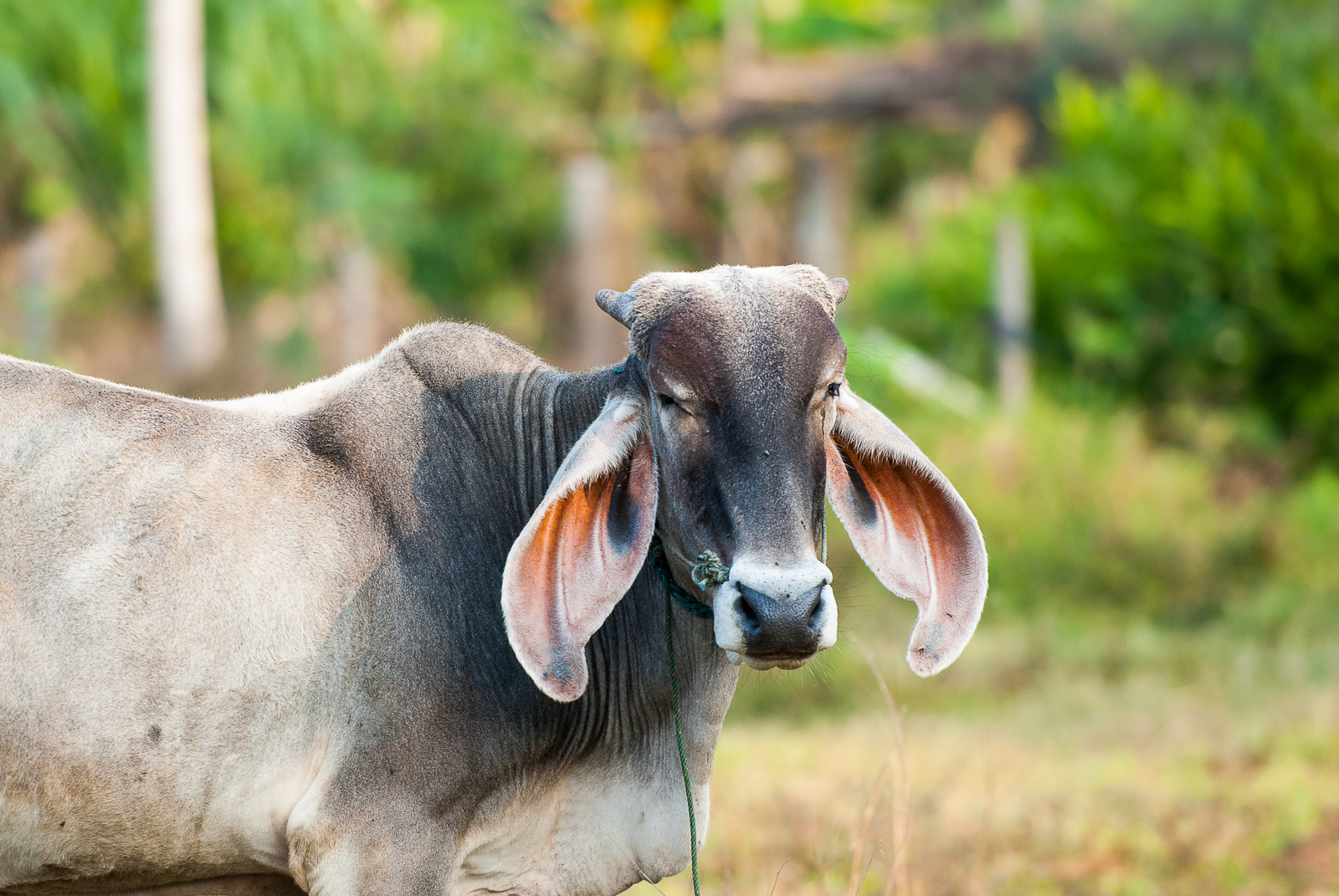Deciding to raise cows on the homestead is a decision that requires planning and a clear vision of what you want the cows to provide for you. Choosing the right cows for the right purpose and with the right temperament will make taking care of them easier and help you achieve your goal of keeping these animals.
The best cow for the homestead depends on your goals for raising cattle on your land. This includes the products you need from the cows, whether for personal use or income. The cows’ temperament, climate suitability, and pasture requirements also influence the decision.
We will investigate the best homestead cows, focusing on beef and dairy cows. As part of our discussion, we will highlight each breed’s characteristics, advantages, and potential challenges. We will also offer tips on choosing the right cow for a homestead based on various factors. Choosing the right cows to bring onto your homestead can make the difference between an easy operation and a challenging undertaking.
Best Cows For Homesteading
Cows have been an integral part of human life for centuries. They have provided us with milk, meat, and other essential products we use daily.
For homesteaders, cows can be a valuable addition to their self-sufficient lifestyle, providing fresh milk, meat, and fertilizer for their gardens.
However, choosing the right type of cow for a homestead can be challenging, as there are different breeds with unique characteristics that can make a difference in how they fit into a homesteading lifestyle.
Best Beef Cows For Homesteading
Beef cows are typically raised for their meat, making them a popular choice for homesteaders who want to produce their own meat on their own land.
However, not all beef cows are created equal, and it’s essential to choose a breed that suits your homesteading needs.
Beef cows are typically harder to handle, more aggressive, and have a wilder temperament than dairy cows. This characteristic of beef cows can make them difficult to keep contained and difficult to treat for illness or injury.
The safety of those working on the homestead caring for the beef cows is also a point to consider when selecting the right beef cow for your operation.
The difference in temperament is usually because dairy cows generally interact with humans frequently, while beef cows do not, making them skittish and defensive around people.
- Angus. Angus cows are popular for homesteaders because they are hardy and adaptable to different climates. They are also known for their high-quality meat, which is marbled and tender. Angus cows are rel
- Hereford. Hereford cows are known for their docile temperament and easy-going nature. Hereford are also hardy and adaptable to different environments, making them a good choice for homesteaders who want a low-maintenance cow.
- Red Poll. Red Poll cows are known for their efficient meat production and high-quality beef. This breed is adaptable to different environments and can thrive in a variety of climates.
- Shorthorn. Shorthorn cows are known for their versatility, making them a good choice for homesteaders looking for a cow that can produce both meat and milk. Shorthorns are also hardy and adaptable to different environments.
- Texas Longhorn. Texas Longhorn cows are known for their ability to thrive in harsh environments and for their lean, flavorful meat. They are also low-maintenance and require minimal input from the homesteader.
The Temperament Of Beef Cows
The breed’s temperament is important because it can affect the ease with which the animals can be worked on the homestead, especially if you have limited manpower.
| Breed | Temperament |
| Angus | Calm and docile, easy to handle |
| Hereford | Docile and easy to handle |
| Red Poll | Gentle and easy to handle |
| Shorthorn | Gentle and easy to handle, can be skittish |
| Texas Longhorn | Independent and strong-willed, can be aggressive |
It’s important to note that these temperaments are generalizations, and individual cows within each breed may have different temperaments. Additionally, a cow’s temperament can be influenced by various factors, including its environment, handling, and breeding.
When choosing a beef cow for homesteading, it’s essential to consider its characteristics, advantages, and potential challenges.
Some cow breeds may be more suitable for certain environments, feed types, or production goals, while others may require more maintenance or specific care. Therefore, homesteaders should research each breed and evaluate their needs before deciding on which breed of beef cow to bring onto their homestead.
Best Dairy Cows For Homesteading
Homesteaders usually start with dairy as the first large livestock on their land. This is because dairy cows provide ongoing products that can be used or sold for an income and generate a profit much faster than beef cows.
Dairy cows are typically raised for their milk, making them a popular choice for homesteaders who want to produce their own dairy products such as cheese, butter, and yogurt.
However, choosing a breed that suits your homesteading needs and delivers your desired quantities is essential.
The following are some suggestions for good dairy cow options on the homestead.
- Jersey. Jersey cows are popular for homesteaders because they are smaller and require less space and feed than other dairy cows. They are also known for their high-quality milk, which is high in butterfat and protein.
- Guernsey. Guernsey cows are known for their rich, creamy milk, which is high in butterfat and beta-carotene. They are also tough, hardy, and adaptable to different environments, making them a good choice for homesteaders looking for a low-maintenance dairy cow.
- Brown Swiss. Brown Swiss cows are known for their large size and high milk production. They are adaptable to different climates and pasture types. They are a good choice for homesteaders who want a cow that can produce large quantities of milk.
- Ayrshire. Ayrshire cows are known for their efficient milk production and hardy nature. They are also adaptable to various environments and can thrive in various climates.
- Milking Shorthorn. Milking Shorthorn cows are known for their docile temperament and ease of handling. They are also efficient milk producers and can produce high-quality milk for various dairy products.
When choosing a dairy cow for homesteading, it’s essential to consider its characteristics, advantages, and potential challenges.
Some cow breeds may be more suitable for certain environments or milk production goals, while others may require more maintenance or specific care. Therefore, homesteaders should research each breed and evaluate their needs before deciding on which dairy cow to bring onto their homestead.
Factors To Consider When Choosing A Cow For Homesteading
When choosing a cow for homesteading, several additional factors must be considered to ensure you choose the right breed for your homesteading goals and environment.
- Purpose. Determine the primary purpose for raising a cow on your homestead. Do you want a cow for meat, milk, or both? Choosing a breed that meets your primary purpose can help maximize the benefits of having a cow on your homestead.
- Climate. Consider the climate of your homestead and choose a breed adapted to the local weather conditions. Some cows thrive in cold weather, while others do better in warmer climates.
- Space. Consider the amount of space available on your homestead and choose a breed that is suited to your available space. Some cows require more space and grazing land than others.
- Feed. Consider the availability and cost of feed in your area. Some cows are better at converting feed into meat or milk, making them more cost-effective to raise in areas with limited feed resources.
- Temperament. Consider the temperament of the cow breed you’re interested in. Some breeds are more docile and easy to handle, making them suitable for homesteaders with limited livestock experience.
- Maintenance. Consider the level of maintenance required for the cow breed you’re interested in. Some breeds require more care and attention than others, including regular grooming and health checks.
Considering these factors will help you choose the right cow breed for your homestead, ensuring a successful and sustainable cow-keeping experience.
Conclusion
Choosing the right cow breed for homesteading is a decision that requires careful consideration. Factors such as purpose, climate, space, feed, temperament, and maintenance all play a role in selecting the right cow breed.
Ultimately, the choice of cow breed will depend on individual homesteading goals, preferences, and circumstances. Careful research and evaluation of each breed’s characteristics and advantages can help homesteaders make an informed decision that maximizes the benefits of having a cow on their homestead.
References
https://www.iamcountryside.com/cattle/best-beef-cattle-breeds/
https://www.iamcountryside.com/cattle/best-beef-cattle-breeds/


